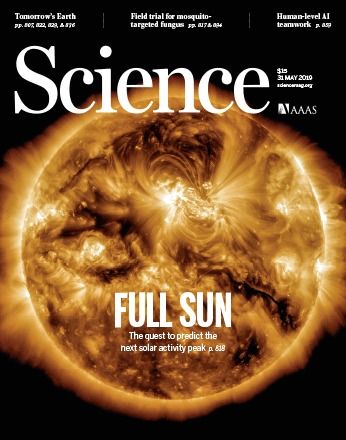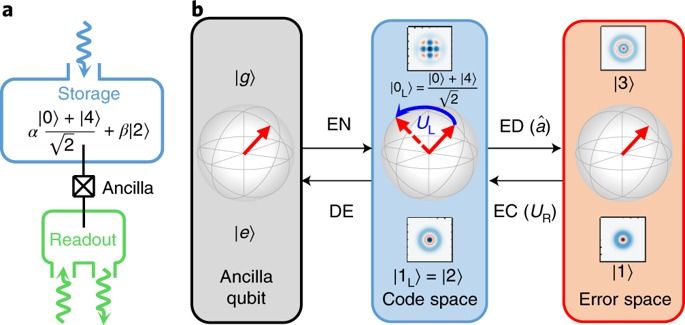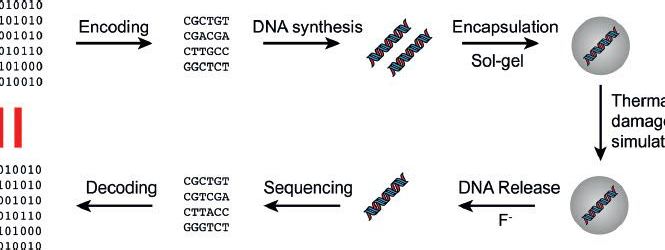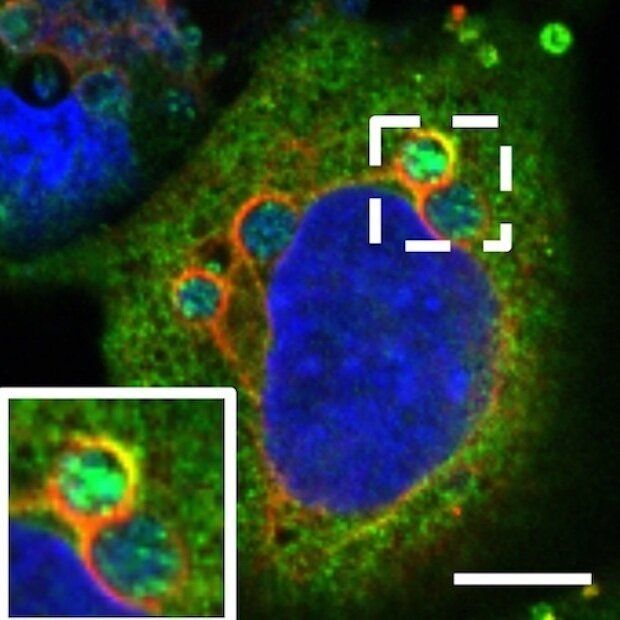Gating—controlling the state of one qubit conditioned on the state of another—is a key procedure in all quantum information processors. As the scale of quantum processors increases, the qubits will need to interact over larger and larger distances, which presents an experimental challenge in solid-state architectures. Wan et al. implemented the 20-year-old theoretical proposal of quantum gate teleportation that allows separated qubits to interact effectively. They deterministically teleported a controlled-NOT gate between two computational qubits in spatially separated zones in a segmented ion trap, demonstrating a feasible route toward scalable quantum information processors.
Science, this issue p. 875
Large-scale quantum computers will require quantum gate operations between widely separated qubits. A method for implementing such operations, known as quantum gate teleportation (QGT), requires only local operations, classical communication, and shared entanglement. We demonstrate QGT in a scalable architecture by deterministically teleporting a controlled-NOT (CNOT) gate between two qubits in spatially separated locations in an ion trap. The entanglement fidelity of our teleported CNOT is in the interval (0.845, 0.872) at the 95% confidence level. The implementation combines ion shuttling with individually addressed single-qubit rotations and detections, same- and mixed-species two-qubit gates, and real-time conditional operations, thereby demonstrating essential tools for scaling trapped-ion quantum computers combined in a single device.








